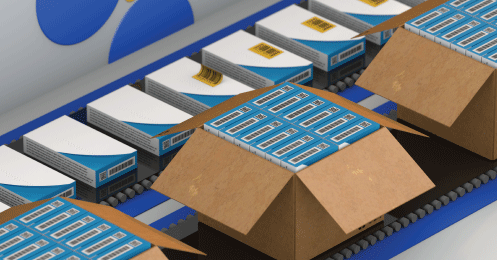Small businesses in the wholesale and distribution industry face a variety of challenges on a daily basis – some that are very specific to an individual company’s processes, and some that are more generally applicable across the entire industry. Wholesale software, as part of a full ERP system, can help solve both generic and unique issues, providing companies with competitive advantages and improved processes. Let's explore some of the more generic challenges that a proper wholesale software solution can address.
Challenge #1: Disconnected Systems
One of the biggest challenges that wholesale software addresses are the disconnect that comes with managing multiple disparate systems. Wholesale ERP is typically designed as an all-in-one integrated solution that handles accounting, inventory management, customer relationship management, eCommerce integration and warehouse management. Each component interacts with one another as part of a single system, providing real-time information on all areas of a company. Data only needs to be entered into the system once, and any updates made in one component of the software are automatically reflected across the entire system. This reduces the number of data entry errors and saves time. From a management perspective, dealing with a single software system is much easier than with multiple systems, especially when working with IT support and purchasing new hardware.
Challenge #2: Manual Processes
Even if you have multiple systems that help run your business, it is most likely that your employees are still performing many processes manually. Businesses often get stuck in a rut, performing processes in a specific way because that's how they've always been done, and not necessarily because they are the best approach. Sticking with manual tasks (that could be automated instead) in the wholesale and distribution industry means order to delivery time is longer, information is not accurate or up to date (which can lead to inventory discrepancies), and valuable resources are being wasted. Wholesale software reduces the amount of time employees need to spend on manual, tedious tasks and instead allows them to focus on more productive activities.
Challenge #3: Reporting
Collecting, displaying and analyzing data in a meaningful way is important if you're going to improve processes, cut costs and identify productivity opportunities. When managing multiple systems or performing manual tasks, the process of reporting can become extremely difficult. Trying to consolidate information from multiple systems and from different areas of your business is a very time consuming and error prone process, and means that your reporting will seldom be accurate and never be timely. A proper wholesale ERP system will allow you to report on almost any data found within the system in real time and can be set up to automatically generate specific reports at appropriate times. These reports can then be automatically sent to the appropriate stakeholders. This helps to give real-time visibility into the status of accounts, orders, inventory and sales.
Managing the above challenges as a small company may be doable at first, however in order to help your business grow, eventually, each challenge will need to be properly addressed. Wholesale software as part of an ERP system is not just for Fortune 500 companies anymore, and there are many systems geared towards these smaller businesses. In addition, many vendors now offer both hosted and on-premises solutions which provide options that can help make the investment more affordable.










